- Learning time
- 30 minutes
- First play time
- 80 minutes
Discoveries
Designed by: Cédrick Chaboussit
In Discoveries you follow the footsteps of famous explorers Lewis and Clark as they trek across America, headed for the west coast, uncovering wide expanses of geography and encountering American Indians* along the way.
The game consists of a central board where ‘spent’ dice will accrue, and individual player boards where you choose actions for your dice. You begin with five dice in your own colour, which are rolled and placed into a stock ready for use. Your goal is to collect Discovery and Tribe cards, which will score you points at the end of the game. On your turn you can only take one action: you either assign dice (all of which must have the same symbol) or you can claim dice.
Assigning is the meat of the game. The dice have four symbols: two movement (feet/horseshoes) American Indians, and a Journal symbol. You can use the American Indian dice to befriend tribes on the route, each of whom will assist you in various ways, making your turns potentially more productive. You use the movement symbols to gather the precious discovery cards: spending dice one one turn and then activating them (using the journal symbol) on a subsequent turn; representing your ongoing journey of discovery. Having done so all your assigned dice are rerolled and returned to your stock. As soon as you fulfil your starting Discovery card, you claim another from a display. If you manage to fulfil this second card the instant you take it, you get an extra turn!
When dice are spent they go onto the central board. When you’re running short on dice you can use a turn to claim some back: either from the central board, or all the dice of your own colour (as the game goes on, the coloured dice get spread around and returning your own colour not only guarantees you five usable dice, it can also mess up an opponent’s plans…)
When the Discovery cards run out game is over – scores are calculated as followed: numbers on the cards score their numeric value, nature symbols on the cards score per set, and the teepee symbols on Discovery and Tribe cards score for having the majority. Most points wins the game.
*until recently ‘American Indians’ was a widely disparaged term, but is now how the majority of native Americans self-identify, and hence been chosen by the publishers of the game
The guru's verdict
-
Take That!
Take That!
It's not a game of battle, but there is a reasonably wide seam of Take That running through Discoveries, and it's all about the dice and when they get reclaimed. Setting yourself up for a big move using other people's dice is risky, because if they choose to reclaim them, your hard work goes up in smoke!
-
Fidget Factor!
Fidget Factor!
Once you know the game, Discoveries plays quickly.
-
Brain Burn!
Brain Burn!
It's nothing too taxing. Often the dice themselves suggest your best move.
-
Again Again!
Again Again!
As well as variety via the dice there's different strategies here too - try to grab the discovery cards with nature symbols, or the high-value points? Befriend many Tribes for their benefits, or go it alone? Start with a plan, or just roll with the punches and try and grab what you can as a travelling opportunist?

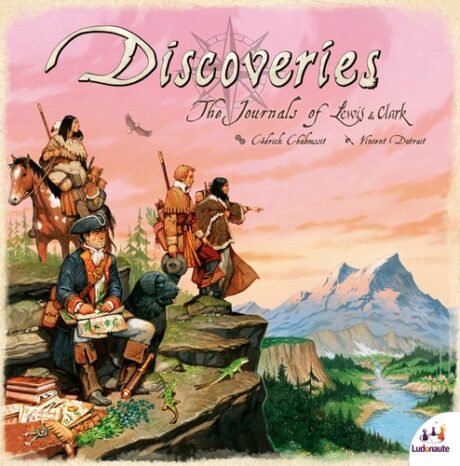

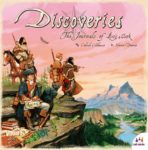
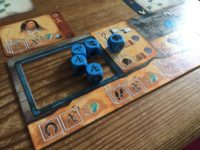
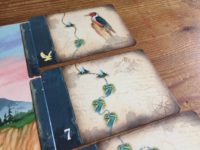
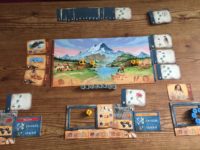
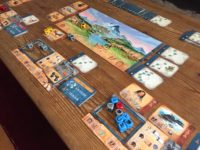


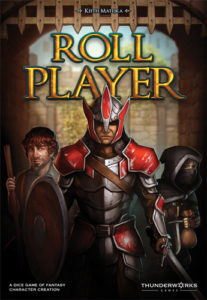
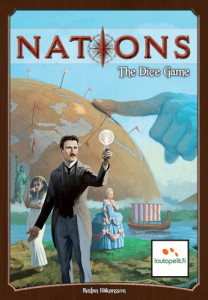
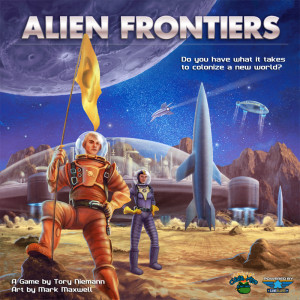
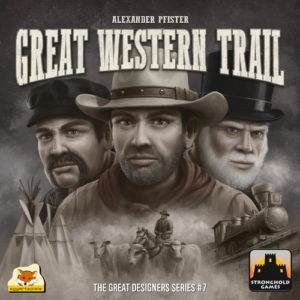
Sam says
This follows the designer's older game Lewis and Clark, which was needless to say inspired by the same historical events. I think the previous game did a better job of the theme and the idea of an epic voyage of discovery. But on the other hand Discoveries is much faster-moving and less prone to ponderous lulls. That said though, it's not a game that made me long to play it again; everything functions perfectly well, but out of that function there's no sense of story here, and there's not quite enough fun to be had in the dice management to replace it.